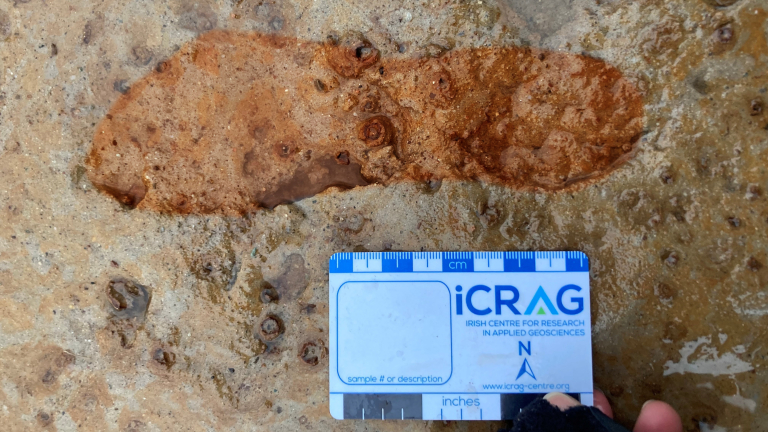Why do people dissociate during traumatic events?
Ever feel disconnected during a stressful event? That could be your brain protecting you.

Get the world’s most fascinating discoveries delivered straight to your inbox.
You are now subscribed
Your newsletter sign-up was successful
Want to add more newsletters?

Delivered Daily
Daily Newsletter
Sign up for the latest discoveries, groundbreaking research and fascinating breakthroughs that impact you and the wider world direct to your inbox.

Once a week
Life's Little Mysteries
Feed your curiosity with an exclusive mystery every week, solved with science and delivered direct to your inbox before it's seen anywhere else.

Once a week
How It Works
Sign up to our free science & technology newsletter for your weekly fix of fascinating articles, quick quizzes, amazing images, and more

Delivered daily
Space.com Newsletter
Breaking space news, the latest updates on rocket launches, skywatching events and more!

Once a month
Watch This Space
Sign up to our monthly entertainment newsletter to keep up with all our coverage of the latest sci-fi and space movies, tv shows, games and books.

Once a week
Night Sky This Week
Discover this week's must-see night sky events, moon phases, and stunning astrophotos. Sign up for our skywatching newsletter and explore the universe with us!
Join the club
Get full access to premium articles, exclusive features and a growing list of member rewards.
During traumatic situations, people might experience an unexpected wave of emotional numbness or feel like they've detached from reality and are having an out-of-body experience. These symptoms of disconnect describe dissociation, a defense mechanism that separates threatening feelings and ideas from the rest of someone's psyche. But why do our minds sometimes dissociate when we're experiencing distressing events?
In short, dissociation can be useful for situations in which someone can't physically get away from stress or danger, such as being the victim of a violent crime or abuse, said Steven Dubovsky, a professor emeritus of psychiatry at the University at Buffalo in New York.
Typically, the sympathetic nervous system — which is responsible for our "fight or flight" response — activates when a person is in imminent physical danger. Mammals, including humans, evolved to have this response, as it pushes them to survive by fighting or fleeing from danger. Dissociation is another way the nervous system is primed to respond to trauma when fight or flight appears to be too dangerous or impossible. Dubovsky described a scenario in which someone could be followed and attacked by a group of people on a dark street. If a person can't find a way to escape or fight back, they might find themselves stuck in the situation.
"When the stressful thing is something you can't escape from, you're going to have trouble functioning unless you can turn [the fear] down," he told Live Science.
Dissociation can protect someone in the moment so that they are mentally separated from a situation causing physical pain, emotional pain or both. This coping strategy may also be associated with freezing and separating the person from the memory of the traumatic event, according to a 2017 study in the journal Current Psychiatry Reports. Oftentimes, victims of abuse or sexual assault report dissociation during the event, a 2015 study in the journal Medicine outlined. Some people report having foggy memories of an event after the fact due to dissociation. Though the lack of clear memory or lack of feeling attached may be jarring after the fact, the dissociation can stop someone from having to relieve painful memories, Dubovsky said.
Related: Is it possible to avoid unwanted thoughts?
Ruth Ellingsen, an associate clinical professor of psychology at the University of Oregon, reiterated that for some people, dissociation may be the only way to stay safe when experiencing abuse. "There's also times when trying to flee a situation could result in more hurt," Ellingsen told Live Science. "For example, if you're a child being abused, [flight] could potentially make the abuse even worse."
Get the world’s most fascinating discoveries delivered straight to your inbox.
In scenarios like this, freezing and disconnecting do more than emotionally separate someone from the stress; this response may be the best decision for survival.
Problems can arise if people continue to dissociate even once they are separated from the intense trauma, as opposed to relying on other coping mechanisms, such as mindfulness, meditation or help from a professional, Ellingsen said.
Both Dubovsky and Ellingsen explained that people who continue to dissociate often struggle with daily stress, like meeting work deadlines or speaking with their peers. Many feel detached in their relationships and may find themselves distracted during what used to be usual interactions or tasks. It's possible that because the disconnection from the traumatic event kept them "safe" or at least detached from bad memories, this coping mechanism becomes the default for other forms of stress, Ellingsen said.
"We tend to see this [overreliance on dissociation] when regular coping resources are depleted," she said. "If you're dissociating a lot when you're encountering stress, that is indicating that maybe you don't have more healthy coping strategies that are working for you."
But the goal of addressing chronic dissociation isn't to eliminate it. After all, it can be a useful tactic to help survive a dangerous situation. But memories of the traumatic event are often disruptive and painful, so having some distance from that could mean a better quality of life after the trauma, Dubovsky said.

Angely Mercado is a freelance science writer and fact-checker based out of NYC. She has a master's degree from the CUNY graduate school of journalism. Angely's work has been featured in Gizmodo, Grist, Vogue, The Guardian and more. She focuses on environmental justice, environmental science and culture.
 Live Science Plus
Live Science Plus











